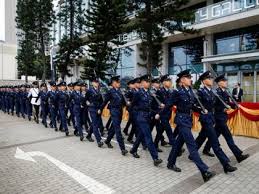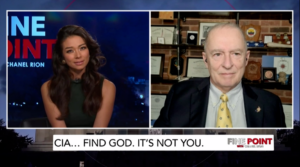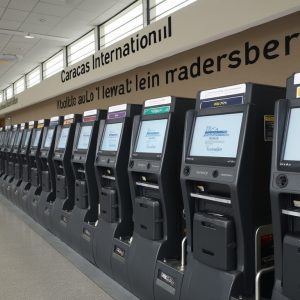We simply do not hear enough about the trauma of the Hong Kong people, says author, former CIA analyst, and accomplished Chinese linguist. Mr. Akers brings us up to date on Xi’s repression of what was a vibrant, free city attracting visitors and businesses from over the world. No more, folks. No more.
HONG KONG: SUBJUGATING ONE OF ASIA’S LAST DEMOCRATIC BASTIONS
by Jeemes Aker
“When I went to Hong Kong, I knew at once I wanted to write a story set there.”
Paul Theroux
“He [Stephen Wilson] took a quick shower and walked down to the pier where he boarded one of the famous green-and-white Star Ferries, the Celestial Star, for the eight-minute ride across the bay to the Kowloon side. Stephen paid a bit more for the topside seat with its beautiful view of the harbor that teemed with ships of every shape and size. An armada of launches, hydrofoils, sampans, police boats, and garbage scows weaved their way among the larger freighters, leaving a crisscrossing maze of white-crested wakes. Stephen squeezed his way to the rail, through the pressing throng of Chinese workers, to enjoy the salt breeze and incredible beauty of the busy port. It was an exhilarating experience.”
Jeemes Aker in Prawnocous Rising
I feel sorry for those of you who never enjoyed the opportunity of visiting the Hong Kong that was … because the Hong Kong that is has become a case-study in how a totalitarian oppressor state—Xi’s China—can gradually strangle the life out of one of Asia’s most vibrant democracies. Hong Kong’s fate, in my view, should also serve as an important object lesson for us in this country about how quickly the most basic freedoms can be lost.
Have you read much about the tragic fate of Hong Kong today? Of course not. The mainstream U.S. media is more concerned about other things: the latest COVID vaccine stories, the Derek Chauvin trial, the expanding “woke” culture, climate change and, of course, President Biden’s dogs.
Sigh.
During my last stint as visiting professor at the College of the Ozarks, I had my students discuss—in every class at least once during the semester—the five global “hotspots” that could affect their futures: Israel and the Middle East (at present there is an ongoing “shadow war” between Israel and Iran);1 Russia and the EU (today over 100,000 Russian troops are massed along its border with the Ukraine and a British naval flotilla is steaming toward the Black Sea, ostensibly to be joined by a US warship); North Korea (new missile threats are emerging from Pyongyang on almost a daily basis); the India-Pakistan border (relatively quiet at the moment as Delhi attempts to cope with new surges of COVID-19); and, finally, China-U.S. geopolitical tensions regarding Beijing’s assertiveness in the South China Sea and a potential future invasion of Taiwan.
Have you been reading any in-depth analysis on any of these topics in today’s media or heard any meaningful discussion on television news broadcasts?
Of course not.
Can I mention just a couple recent tidbits that may have slipped by you? This week, one of America’s top-ranking generals warned we need to be prepared for a nuclear war. What? Who in the media is talking about that?
Do you know where the nearest fallout shelter is to your location? Have you been given any information on how to survive a nuclear or EMP attack? Of course not. The high-tech titans have their emergency underground facilities as do the Washington political elites. They have made contingency plans for their survival. You and I have been left to fend for ourselves. We are expendable. Think about it. (In Russia, for example, they hold regular drills in urban cities in anticipation of a future nuclear exchange).
Sigh.
Today, momentous changes are happening in Asia. In many locations there, democracy is in retreat or under pressure. In Myanmar, for example, the China-backed junta is cracking down on pro-democracy activists of all stripes. (For those of you interested in the topic, I suggest reading my missive entitled “Sweatin’ at Shwedagon” from earlier this year – Democracy Lost in Military Coup in Myanmar) In Thailand, a military government remains firmly in control.
But most concerning, at least in my view, is Beijing’s recent sabre rattling over Taiwan, a flourishing democracy and global tech hub. China’s Communist Party considers the island of Taiwan to be a province and part of PRC (People’s Republic of China) territory under its Constitution. Taiwan, meanwhile, calls itself the Republic of China and considers itself to be a separate self-governing entity. Biden’s administration appears content to continue the long-standing US policy of “strategic ambiguity” with the U.S. signaling that it’s prepared to defend Taiwan without explicitly pledging to do so.2 In recent days, Chinese aircraft have repeatedly crossed into Taiwanese airspace, prompting the Biden administration to dispatch three former senior officials to Taiwan, a move Beijing described as “playing with fire.”3 The administration also is reportedly ready to sell weapons to Taiwan (self-propelled artillery), which will further exacerbate bilateral tensions. Earlier this week, Japanese foreign policy officials said they were not obligated to respond with troops if China invades Taiwan.
So, why are we not reading headlines about these developments?
China seems, for the moment at least, to be clearly holding the upper hand.
What is the connection between Taiwan and Hong Kong?
When the United Kingdom transferred sovereignty for Hong Kong to China in July 1997 (according to the terms of the Basic Law),4 China’s promise to respect the democratic rights and privileges of Hong Kong’s citizens for 50 years was widely seen as a litmus test for the way it would treat the Taiwanese in the event of a future peaceful unification.
Bottom line: today’s crackdown on pro-democracy activists in Hong Kong is being watched closely in Taiwan.
They have to sense that their turn is coming next.
My how quickly things can change.
It is hard to imagine that a mere fifteen to twenty months ago, Beijing’s leaders were under pressure on all sides. In 2019, Hong Kong’s democracy movement took the form of student and street protests that shook the city and “presented China’s Communist Party rulers with the most serious popular challenge since the Tiananmen uprising in 1989.”5 As I wrote in a missive entitled “The Winner of the 2020 Global Sweepstakes” THE WINNER OF THE 2020 GLOBAL SWEEPSTAKES IS…: “By any stretch of the imagination, it has been an amazing couple years for Xi Jinping and the Chinese leadership. They entered into this period of time with several problems: a slumping domestic economy; an increasingly hostile Trump administration in Washington actively moving against Chinese technological companies, U.S. Navy maritime maneuvers in the South China Sea, and new diplomatic overtures to Taiwan; international pressure stemming from Beijing’s harsh treatment of China’s Muslim Uighur population; and, massive student-led demonstrations in Hong Kong.”
What happened? Three words: the Wuhan pandemic.
In my aforementioned piece, I described it this way: “either by a stroke of incredibly good fortune or design, a worldwide pandemic began.”
The pandemic completely reversed Beijing’s desperate economic and political plight.
In Hong Kong, for example, fears of COVID-19 (SARS-Cov-2) chased protestors from the street. Massive street protests against Hong Kong Basic Law Article 236 ended abruptly. Beijing’s leaders took advantage of the pandemic-forced interlude to impose a tough new security law on Hong Kong in June 2020, creating broadly worded crimes that can land people in jail for playing a song or uttering a slogan. It has already driven out thousands of people and led some companies, including the New York Times, to move employees elsewhere.7
But there is a deafening media silence about what is happening in Hong Kong. (Only on April 20, 2021, did The Washington Post finally publish a story, “The ‘brainwashing’ of Hong Kong begins,” featuring a picture of goose-stepping Hong Kong police units, that was critical of Beijing’s heavy-handed tactics).8
Otherwise, crickets.
What is happening today? Less than a week ago (April 15), Hong Kong held a “National Security Education Day” which—according to Mahtani’s article—“was the most visible display of Hong Kong’s fall from a relatively free, boisterous territory to an Orwellian place that resembles the repressive mainland.”9 The day’s activities were directed primarily at children and demonstrates how authorities are enforcing a single narrative of the protests—meddlesome foreign forces stirring up trouble—and how “no expense will be spared to fully integrate the financial center into China’s authoritarian system.”10 Today, school students are being prodded to sing the Chinese national anthem, write “wish cards” pledging support for the new law, and watch pro-Party cartoons. All to celebrate the tough new security law and kowtow to Beijing’s party elites. “Now, the security law is being portrayed to youngsters as something universal and observant of human rights.”11
At the same time, opposition leaders are now being marched off to jail and the memories of the 2019 protests are being erased, leaving only a narrative of violent rioters deceived by foreign forces amidst new laws designed to eradicate them. Using the new security law, 47 pro-democracy activists have been arraigned on charges of conspiracy to commit subversion; only 11 have been granted bail. The defendants’ ordeal is unusual in Hong Kong, according to retired jurists: “The city long took pride in the independence of its British-style judicial system. Now … the bail proceedings—herding opposition figures into a single courtroom for days, and depriving them of sleep and other basic rights—have marked a dramatic departure from the common law tradition of Hong Kong, developed over 156 years of British rule.”12 Or, as a friend of journalist Mahtani recently observed: “this place is now unrecognizable.”13
Journalists and media outlets critical of Beijing’s crackdown are also in the crosshairs. This week, Bao Choy Yuk-ling, a 37-year-old investigative journalist was found guilty of making a false statement while searching a public vehicle database as part of an investigation. She was looking into a violent gang attack in July 2019, when a pro-Beijing mob of armed thugs beat protestors and commuters at a suburban train station. No assailants have been found guilty and the police are attempting to rewrite the narrative concerning the incident.14 One prominent media outlet critical of the mainland’s policies, Jimmy Lai’s Apple Daily, is now considering selling out and is changing wording to mollify Beijing’s masters: “For example, as a major force in slandering the mainland, the expression ‘Wuhan pneumonia’ has been changed to COVID-19 recently.”15 Many people and media—including Ta Kung Pao, a major Hong Kong newspaper—have started calling for the Apple Daily to be banned.16
It wasn’t always that way.
My only visit to Hong Kong (before the Brits handed it over in 1997) was magical. And unforgettable. I loved the vibrancy of the people, the sights, sounds and smells of the colony’s endless streets and shops, the amazing vista from Mount Victoria, the eclectic cacophony and exotic mix of cultures, and the frenzy of the port. Indeed, from the initial exhilarating final approach into old Kai Tak Airport—banking sharply to descend between the high-rise tenement buildings with laundry hanging outside and the pilot standing on the brakes after touchdown to avoid toppling into the bay—I was fully enchanted by my time in Hong Kong (literally “Fragrant Harbor.”)
Like Theroux, I determined to include scenes from Hong Kong in my future novels. The city truly casts a spell over all its visitors. Include me among those so captivated.
At one time, there was no place like it on earth.
I had assumed Hong Kong would retain its British heritage and colonial charm, with a raucous Chinese overlay, for at least a couple decades into the future. I had created several chapters in my novel based on that assumption.
Now, I may have to revise some of the narrative.
Simply put, Beijing’s overlords have trampled on the agreement they made in 1997 and now appear determined to bend the will of the people and rebrand the former British colony in its own authoritarian image.
No one seems willing, or able, to stop them.
As a result, the Hong Kong I love so dearly is likely to be changed forever.
And I can’t help but wonder, now that the inmates are running the asylum (my view), could the same thing happen here?
Link to captioned photo: Hong Kong police learn Chinese goose stepping




